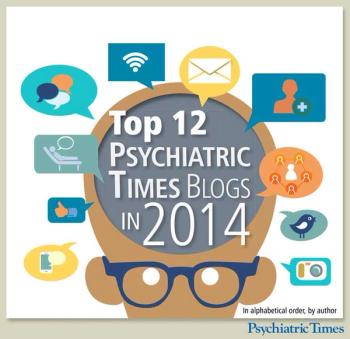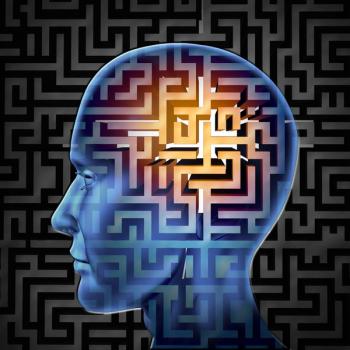
A slideshow on some of this year's blogs at Psychiatric Times, written by leaders in the field of psychiatry.

A slideshow on some of this year's blogs at Psychiatric Times, written by leaders in the field of psychiatry.

A comprehensive adjustment to life after having had a psychotic episode and diagnosis of schizophrenia is a relatively new concept. An expert describes the post-psychotic adjustment process.

Many psychotherapies attempt to enhance patients’ problem-solving capacities, interpretation of images, and regulation of affective states. What areas in the brain play a role in these functions?

IOCDA Week takes place from October 14 to 20, 2013, and is celebrated by a number of organizations across the US and around the world, including Columbia University Clinic for Anxiety and Related Disorders.

October is an active month for promoting public awareness of psychiatric illnesses and social programs that give hope to those affected by mental illness.

Medication side effects of weight gain and increased appetite, together with non-adherence often found in persons with schizophrenia, bipolar disorder, and other serious mental illnesses, have challenged clinicians in the past.

Research efforts for LGBT patients include creating innovative medical and mental health services that lead to the training of students and practitioners and promote the development of outreach strategies specific to today’s critical needs.

Chronic exposure to addictive drugs like cocaine produces a progressive pattern of synaptic plasticity in reward circuits that can continue to develop well into periods of drug abstinence.

The American Psychiatric Association Board of Trustees announced that it has approved the final diagnostic criteria for the DSM-5. According to the board, the APA has passed a “major milestone” on the way to its publication slated for May 2013.

Data from neurobehavioral studies, brain imaging studies, epidemiological surveys, and clinical trials show that pathological gambling shares aspects of both impulsivity and compulsivity.

A study of veterans at risk for suicide showed that single attempters did not differ from multiple attempters on any variable except a history of childhood physical abuse.

Neural underpinnings and symptom presentation in borderline personality disorder might explain similarities and differences in this symptom domain across the spectrum of personality disorders as well as in other disorders associated with impulsive symptoms.

A video on ADHD and impulsivity from childhood to adulthood.

A treatment model for soldiers returning from Iraq, Afghanistan, and other areas of conflict, “RESPECT-Mil” reaches out to soldiers affected by anxiety, PTSD, and depression.

New data show that patients with unipolar, non-psychotic major depressive disorder (MDD) receiving transcranial magnetic stimulation (TMS) achieved significant improvements in both depression symptoms and in quality of life measurements.

The APA has invited public comment on the proposed criteria for the upcoming DSM-5 for the third and final time. From May 2 until June 15, public responses will be considered by the DSM-5 Work Groups.

Research suggests there are varying versions of ADHD, and like multiple subtypes of cancer, ADHD encompasses an entire family of disorders.

Autism: The DSM-5 Neurodevelopmental Disorders Work Group questions the validity of a study by James McPartland and colleagues.

A study has reported a link between postpartum psychosis in women within 2 weeks after childbirth and a future risk of developing it.

The first week in October. Leaves fall. Kids start school. Temperatures descend. Weather fluctuates. Stigma decreases. Awareness rises-with the help of the 21st anniversary of NAMI's Mental Illness Awareness Week.

The statement, “It’s okay, you can try again,” is even less useful advice to a grieving mother than originally thought.

Daily meditation over a consistent period of time changes gray matter density in parts of the brain associated with memory, sense of self, empathy, and stress. But more research is needed.

The Arizona Psychiatric Society and the American Psychiatric Association joined together to remember the victims of the Tuscon tragedy. The shooting left 6 dead and 14 others wounded, including US Rep Gabrielle Giffords, who lies in a medically induced coma recovering from a gunshot wound to the head.

Contrary to the popular belief that quitting increases anxiety, a recent study reports that stopping smoking can lift depression, decrease anxiety, and give quitters a sense of accomplishment during the period of abstinence.

In a question-and-answer discussion with Dr Phillip Resnick, clinicians gained valuable insights into the legalities of psychiatry and how best to treat patients and protect the public (and themselves).

Two recent studies by Harvard psychologists deliver promising data from 2 tests that may help clinicians predict suicidal behavior. The markers in these new tests involve a patient’s attention to suicide-related stimuli and the measure of association with death or suicide.

Adolescents with ADHD, conduct disorder, or who smoke cigarettes are less likely to finish high school on time and more likely to drop out altogether, researchers at the University of California, Davis, School of Medicine have found.

In continuing efforts to help the overwhelming number of soldiers returning from Iraq and Afghanistan with PTSD, the US Army is using therapy dogs.

From 19th century French impressionists to current-day “rockers,” it has always been a loosely held belief that creative genius encompasses (even embraces) substance use. But a recent study found that substance use impedes artistic creativity.

Transcranial magnetic stimulation produced improvements in key areas of cognition and in short-term verbal memory in patients with major depressive disorder, and no adverse cognitive effects were shown. The results of this research were presented by Mark Demitrack, MD, vice president and chief medical officer of Neuronetics, Inc, and colleagues at the annual meeting of the American Psychiatric Association in May.